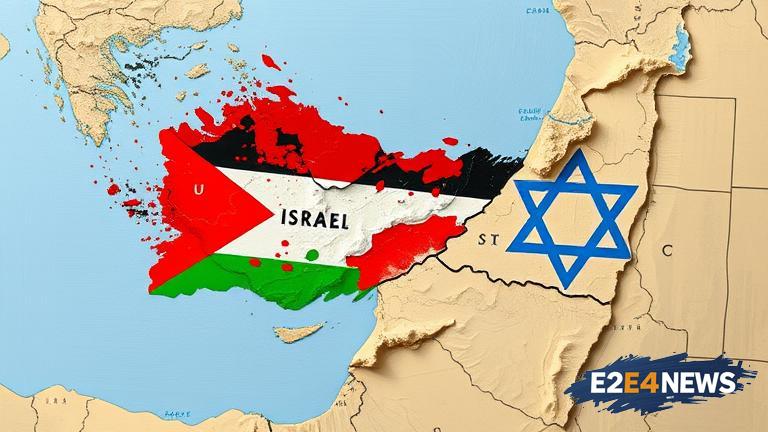The Israel-Palestine conflict has been a longstanding and contentious issue, with both sides claiming sovereignty over the same land. Recently, Israel has made statements suggesting that it intends to wipe Palestine off the map, sparking widespread condemnation and concern from the international community. This move has been met with outrage from Palestinian leaders, who argue that such a move would be a gross violation of their human rights and a blatant disregard for international law. The United Nations has also weighed in on the issue, calling for calm and restraint from both sides. Despite this, Israel has continued to push forward with its plans, citing security concerns and the need to protect its citizens. However, many argue that this is simply a pretext for further annexation and expansion of Israeli territory. The Palestinian people have long suffered under Israeli occupation, facing restrictions on their movement, economy, and access to basic necessities like water and healthcare. The international community has repeatedly called for a two-state solution, with Israel and Palestine existing side by side in peace and security. However, this goal seems increasingly distant as Israel continues to expand its settlements and tighten its grip on Palestinian territory. The United States has been a key player in the conflict, providing significant financial and military aid to Israel. However, the US has also been criticized for its biased approach to the conflict, with many arguing that it has failed to hold Israel accountable for its actions. The European Union has also been involved in efforts to resolve the conflict, but its efforts have been hindered by internal divisions and a lack of cohesion. As the situation continues to deteriorate, there are fears of a full-scale war breaking out, with potentially catastrophic consequences for the region. The humanitarian toll of the conflict is already being felt, with thousands of Palestinians displaced and living in poverty. The conflict is also having a significant impact on the regional economy, with trade and investment being severely impacted. Despite the challenges, there are still many who believe that a peaceful resolution to the conflict is possible. This would require a willingness from both sides to compromise and work towards a mutually beneficial solution. However, with tensions running high and emotions raw, this seems like an increasingly distant prospect. The international community must continue to pressure both sides to negotiate and find a peaceful resolution to the conflict. This can be achieved through a combination of diplomatic efforts, economic incentives, and a commitment to upholding international law. The fate of the Palestinian people hangs in the balance, and it is imperative that the international community takes action to prevent further suffering. The conflict is a complex and deeply ingrained issue, with roots stretching back decades. However, with patience, persistence, and a commitment to justice, it is possible to find a way forward. The world is watching as the situation unfolds, and it is imperative that leaders on both sides take responsibility for their actions and work towards a peaceful resolution. The consequences of failure would be catastrophic, not just for the Palestinian people, but for the entire region. It is time for the international community to come together and demand a peaceful resolution to the conflict. The future of the Middle East depends on it. The world cannot afford to stand idly by as the conflict escalates, and it is imperative that action is taken to prevent further bloodshed. The time for talk is over, and the time for action is now. The international community must take a stand and demand that Israel and Palestine work towards a peaceful resolution. The fate of the region depends on it.
